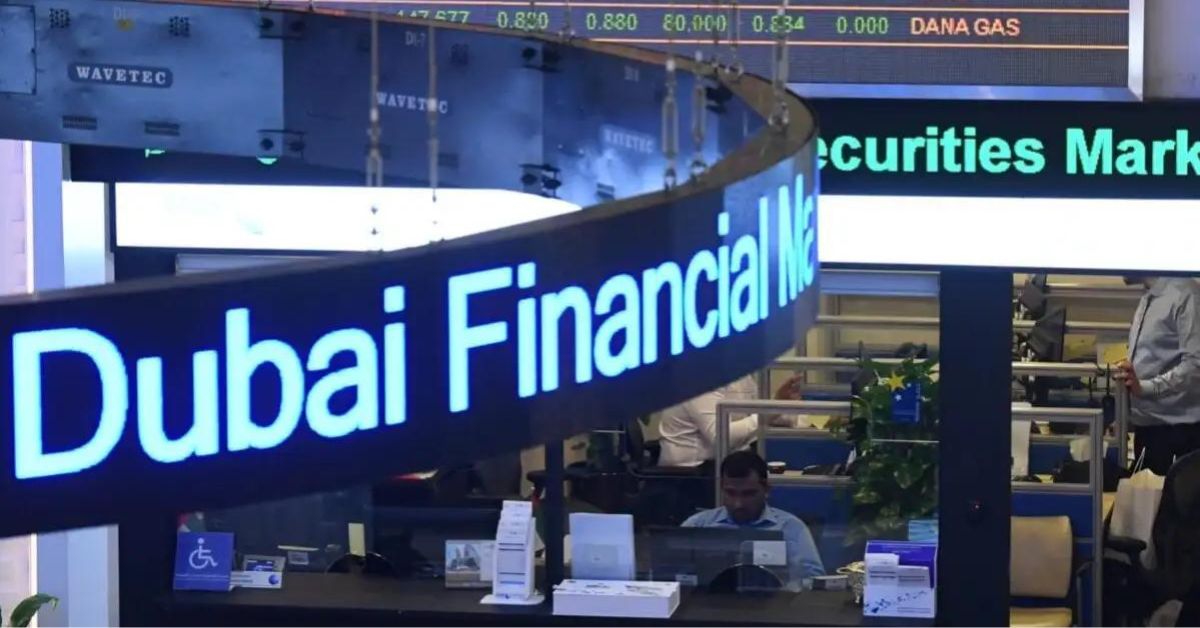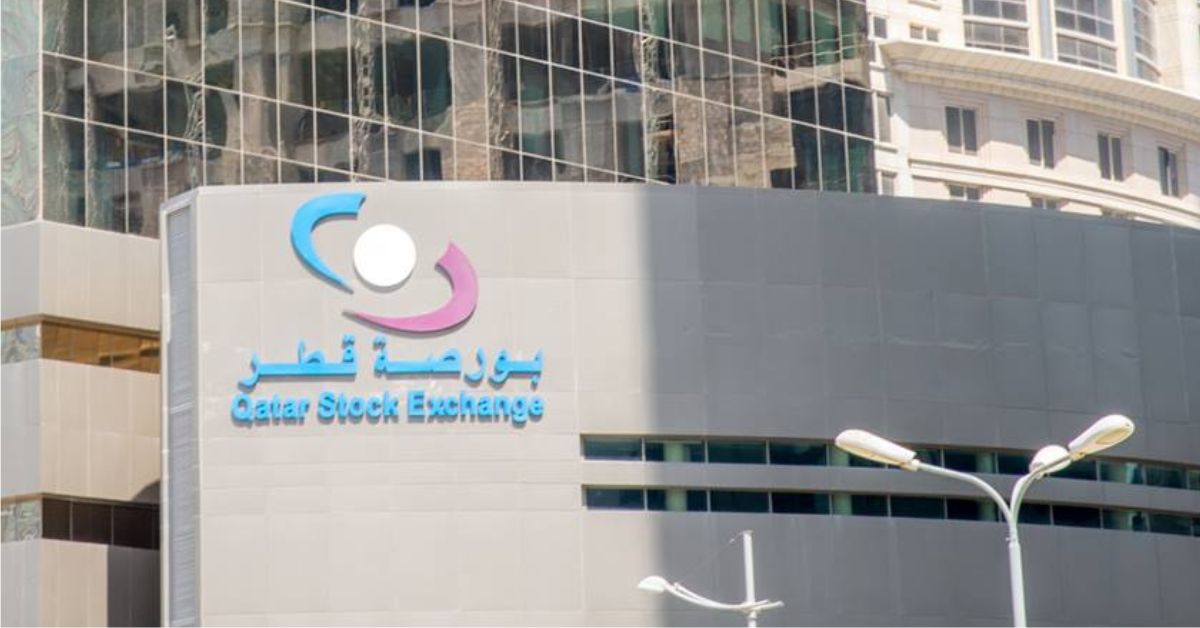DUBAI, UAE — The GCC equity market index experienced its first gain in four months, with benchmarks across the GCC countries showing gains during the month.
In November 2023, the MSCI GCC index rose by 5.2 percent, primarily driven by global market optimism following expectations that interest rates may have peaked, with central banks possibly cutting rates in the next year, likely in the second half.
According to a new report by Kamco Invest, Qatar emerged as the best-performing market in the GCC, posting a return of 5.4 percent. This was followed by Saudi Arabia and Dubai, which saw gains of 4.6 percent and 3 percent, respectively. These monthly gains reduced the year-to-date (YTD) 2023 decline for the region to 2.4 percent.
Four out of the seven regional benchmarks still showed declines, but Dubai and Saudi Arabia recorded healthy YTD gains of 19.7 percent and 6.7 percent, respectively.
At A Glance * Qatar led the GCC markets with a 5.4% return, followed by Saudi Arabia (4.6%) and Dubai (3%). * Despite some regional benchmarks declining, Dubai and Saudi Arabia showed year-to-date (YTD) gains of 19.7% and 6.7%, respectively. * Most regional indices experienced growth, except the GCC Insurance index, which saw a minor drop of 0.4%. * The Pharma & Biotech sector led with a 21.4% gain, followed by Consumer Durables & Apparel and Healthcare indices. * Banking and other large-cap sectors also demonstrated impressive gains. * Globally, key markets were up, with the MSCI World index increasing by 9.2%, its highest in four months. * U.S. Tech stocks performed exceptionally well, with significant gains in the NASDAQ Composite and S&P 500 indices. * Saudi Arabia's TASI index surpassed 11,000 points, achieving a 4.6% gain in November 2023. * The FTSE ADX index in Abu Dhabi rebounded by 2.3% in November 2023 after two months of declines. * Abu Dhabi's financial sector is expected to grow by 13% in 2023, with its non-oil economy also seeing significant growth. * The Emirates government focuses on diversifying its economy away from oil dependence. * The DFM General Index in Dubai reported the third-biggest monthly gain in the GCC. * Kuwait's Boursa experienced growth across all benchmark indices, particularly in large-cap stocks. * Qatar's stock exchange saw the highest monthly return in the GCC, with the QE 20 index crossing 10,000 points. * Sector performance in Qatar showed gains in most areas, with notable increases in Banks & Financial Services and Consumer Goods & Services.
On the sectoral front, nearly all regional indices experienced gains in November 2023, except for the GCC Insurance index, which dropped slightly by 0.4 percent.
Leading the gainers, the Pharma & Biotech sector surged with a 21.4 percent increase, followed by the Consumer Durable & Apparel and Healthcare indices, which rose by 14 percent and 11.7 percent, respectively.
Large-cap sectors, such as Banking, also demonstrated impressive gains of 6.6 percent, while Energy and Materials indices posted smaller increases of 1.8 percent and 4.3 percent, respectively.
Internationally, nearly all key global markets were up during the month, registering healthy gains. This buoyancy propelled the MSCI World index to its highest level in nearly four months, marking a 9.2 percent increase — the largest monthly gain in three years. The YTD 2023 gain for this index stood at 16.2 percent.
U.S. Tech stocks were particularly strong performers, with the NASDAQ Composite index climbing 10.7 percent and the S&P 500 index increasing by 8.9 percent. The emerging market index also saw a substantial gain of 7.9 percent in November 2023.
Saudi Arabia
After experiencing losses in the previous three months, Saudi Arabia’s TASI achieved the second-best monthly return in the GCC during November 2023. The index surpassed the significant threshold of 11,000 points, closing at 11,177.5 points, and notched a monthly gain of 4.6 percent.
This performance was fueled by a blend of factors, including higher corporate profitability for Q3 2023 among companies listed on the Saudi Exchange, and a global rally in stock markets providing additional momentum. This monthly uptick propelled TASI’s year-to-date (YTD) 2023 gains to 6.7 percent, ranking it as the second highest in the GCC.
The monthly sector performance chart was dominated by gainers, led by the Pharma, Biotech & Life Science index with a 15.2 percent increase, followed by the Capital Goods and Consumer Durables & Apparel indices, up by 14.1 percent and 13.8 percent, respectively. On the declining side, the Energy index and Food & Staples Retailing sectors saw a marginal decrease of 0.2 percent during the month.
Abu Dhabi Securities Exchange
Following two consecutive months of declines, the FTSE ADX index rallied by 2.3 percent in November 2023, closing the month at 9,559.27 points. These gains contributed to the index’s positive YTD performance, which reached (-6.4 percent) by month-end.
In terms of sectoral performance, eight out of the ten sectors on the exchange recorded gains during the month. The Health Care index experienced the most significant growth among the indices in November 2023, surging 12.7 percent to close the month at 4,115.5 points, a stark contrast to the previous month when it registered the most significant decline.
In economic news, Abu Dhabi’s financial sector is anticipated to grow by 13 percent in 2023. Additionally, the non-oil economic sector in Abu Dhabi saw a 12.3 percent year-over-year increase in the second quarter of 2023. In comparison, Abu Dhabi’s oil economy lagged behind the non-oil sector throughout 2023, affected by a combination of lower oil prices and reductions in oil production.
The Emirates government is actively focusing on growing its financial sector as part of a policy to diversify the economy away from oil dependence. According to the UAE government, the Emirates’ non-oil economy recorded nearly 6 percent year-over-year (y-o-y) growth during the first six months of 2023.
Dubai Financial Market
The DFM General Index marked the third-biggest monthly gain in the GCC during November 2023. The benchmark saw a gain of 3 percent for the month, closing at 3,992.36 points and rebounding from a 6.9 percent decline in October 2023.
The monthly index performance was balanced, with four out of the eight sector indices recording gains and the remaining four registering declines. However, significant gains in the Real Estate Sector (+10 percent) and the Financial Sector (+2.5 percent) tipped the general index into positive territory.
The surge in the Real Estate Sector was largely driven by substantial share price increases of Deyaar Development (+14 percent) and Emaar Development (+10.2 percent). In contrast, the Communication Services index experienced a 3.9 percent decline, closing the month at 872.7 points, while the Consumer Staples index dropped by 2.5 percent, ending the month at 109.7 points.

Kuwait
Boursa Kuwait returned to growth in November 2023, with all four benchmark indices witnessing gains. The growth was primarily observed in large-cap stocks, as the Premier Market Index outperformed other indices on the exchange with a gain of 2.1 percent, closing at 7,291.7 points.
The Main 50 Index recorded a slightly smaller monthly growth of 1.6 percent, while the Main Market Index increased by 1.1 percent. The All-Share Market Index reported a monthly growth of 1.9 percent and closed at 6,653.84 points.
In terms of YTD 2023 performance, all market segments were in the red, with the Premier Market Index down by 10.2 percent, followed by an 8.8 percent decline in the All-Share Market Index. The Main 50 Index and Main Market Index dropped by 6.3 percent and 2.6 percent, respectively.
Qatar
After experiencing its most significant loss in nine months in October 2023, the Qatar Stock Exchange rebounded with the highest monthly return in the GCC during November 2023. The QE 20 index surpassed the crucial threshold of 10,000 points, closing the month at 10,041.7 points with a gain of 5.4 percent.
The Qatar All Share Index also recorded a 4.9 percent increase during the month, indicating broad investor interest across market segments. However, in terms of year-to-date (YTD) performance, the QE 20 index was down by 6 percent, marking the third largest decline in the GCC, while the All-Share index fell by 1.9 percent.
The monthly sector performance chart showed gains in most sectors. The Banks & Financial Services index led the way with a 7.5 percent increase, closely followed by gains in the Consumer Goods & Services and Real Estate indices of 5.2 percent and 5 percent, respectively.
Conversely, the Transportation Index experienced the most significant monthly decline of 2 percent, followed by the Insurance index, which dropped by 1.6 percent.








